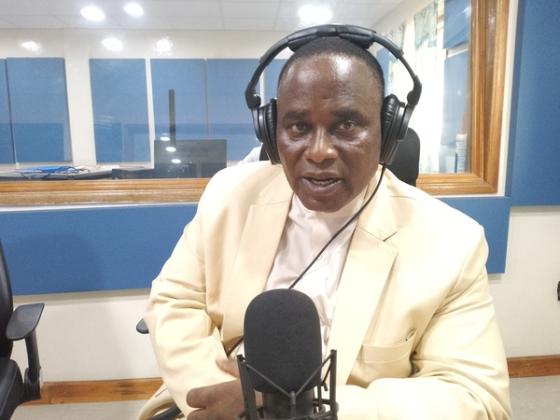Liberia: Rubber Development Fund Urged to Address Sectoral Constraints

--- “When we discovered that many farmers are finding it difficult to develop their farms, we said that we are in crisis and there was a need that funds be made available to solve the problems of the sector,”Tokpa Mulbah said.
The President of the Rubber Planters Association of Liberia (RPAL), Tokpa Mulbah, has challenged the management of the Rubber Development Fund (RDF) to work in stabilizing the small-scale rubber sector of Liberia.
Considering the current difficulties that Liberian smallholder rubber farmers are enduring as relates to market constraints, Mulbah said, the RDF should be used to assist struggling farmers overcome their challenges.
Appearing on a local radio talk show in Monrovia recently, the RPAL president indicated that a proposal was made recently to the fund’s management to provide some resources to help mitigate problems facing the farmers.
“When we discovered that many farmers are finding it difficult to develop their farms, we said that we are in crisis and there was a need that funds be made available to solve the problems of the sector. We wanted the money to be given as loans to farmers but this was not possible,” he said.
Firestone, the biggest buyer of rubber in the country, has refuted reports of not purchasing farmers’ rubber. The company said that they were buying rubber from farmers but in limited quantities due to factory faults.
The limited market access for rubber remains a major impediment for the small scale rubber sector. Most other buyers of rubber have also stopped buying rubber in the Liberian market.
Currently, the low price of rubber is severely impacting the business of many smallholder rubber farmers whose plantations still have not yet improved.
The RDF act calls for the rehabilitation of smallholder rubber farms and the need to invest more in value addition and others.
This rubber fund act was established in 2017 during the administration of former President Ellen Johnson Sirleaf to develop the small-scale rubber sector.
Meanwhile, Mulbah disclosed that they are working with the government to secure US$5 million to mitigate the current market challenge facing the farmers.
He explained that the RDF is actually the regulatory body of the rubber sector that should ensure the control of rubber prices locally.
“The fund that is collected is being deposited into an account. But it makes it very difficult to withdraw the fund for the use of the sector because you have companies like Firestone sitting on the Board making it a very serious challenge for decision making,” he said.
“The rubber fund is not doing much to benefit smallholder farmers. We had a Board meeting recently and we said that we have more than US$600,000 in the account of the rubber fund. We said that this money could come as a guarantor to give out to farmers as loans so that they will be able to reopen their farms, but this was not possible,” Mulbah said.
Mulbah is former Deputy Speaker of the 53rd Legislature and a former representative of Bong county. He succeeded Williamina Mulbah Siaway as president of the association a few years ago.
“The role of the Executive Director is very challenging because some members of the Board do not want to agree to certain decisions, mainly price regulations,” he mentioned.
He stated that the RDF was there in the sector to gather funds for the rubber sector.
“As it is in places like the Ivory Coast, the rubber regulatory body is very strong. They raise funds to purchase fertilizers and other subsidies for the farmers. The fund was established to benefit the smallholder farmers, but today we are not seeing any benefit for them. The smallholder farmers are paying more taxes to the fund than corporations if you look at the record. We have engaged the executive director, who is a secretary of the Board, to make sure that the farmers benefit but it is difficult,” he added.
The Executive Director of the RDF, Julius Sele, could not be reached for comment on the issue, up to the publication of this article.
According to Mulbah, the RPAL is working with the government to see reasons to invest in value addition to make the sector sustainable. He said they are encouraging the farmers to now grow rubber in an improved way so as to not destroy the land.
The RPAL president also called for the need for the establishment of what he termed as a company facility that can bring more benefits to the sector.
He said this facility created by the government as it has been done in neighboring countries will create more jobs for the citizens and bring about foreign income earnings.
“This will improve the lives of the citizens and bring in more money to the country. If I can produce 50 gallons of latex and be able to manufacture rubber gloves I will bring more money into the country. This is going to improve the tax revenues of the country. But only by producing the raw materials and having them transported outside the country will not benefit me much as a farmer,” he added.
According to Mulbah, his association is encouraging the farmers to grow the crop in one place intercropped with other crops.
“When I rate the purpose of the fund since it was established there exist no significant achievements,” he said.
Mulbah said the fund was also meant to stabilize the industry in case of any future eventuality.
He challenged the management to rise up to the task to use the fund to address challenges within the sector.
